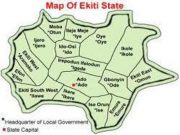Worried by the not so impressive outlook of the nation’s insurance subsector, Tony Elumelu has suggested a capital base of between N20-30b for the operators, stressing that this would bring them to global reckoning.
Elumelu, Chairman at Heirs Holdings, was the keynote speaker at the just concluded National Insurance Conference organised by National Insurance Commission (NAICOM) in Abuja.
The conference with the theme, ‘Redefining Safety – Insurance Solutions for Public Buildings and Buildings under Construction” drew participants especially from insurance professionals and allied business stakeholders to discuss the way forward.
While addressing the packed audience, Elumelu stressed the need for a paradigm shift in the way things are being done in the sector in line with global best practices.
Specifically, he said life insurance companies should have a capital base of N20 billion, while non-life insurance companies should have N30 billion.
Additionally, he proposes the consolidation of operators with a capital base of N50 billion.
To drive industry awareness and promote growth, Elumelu advocates for a mandatory contribution of 0.5% of total revenue from all insurers for a period of five years. This funding would be dedicated to initiatives that enhance industry awareness and education.
Another area that requires attention, according to Elumelu, is the capital base of insurance brokers.
He recommends raising their capital base to N1 billion, which would strengthen their ability to provide quality services to clients.
Speaking earlier in his welcome address, the Commissioner for Insurance Olorundare Sunday Thomas said the conference is only one out of numerous efforts of the Commission at creating the needed awareness of the general public of compulsory insurances just as it uses the platform to strengthen collaboration with relevant government and non-government agencies and other stakeholders.
“This is being done to ensure that enforcement of all classes of compulsory insurances across the country are carried effectively.”
While highlighting NAICOM’s strategic thrusts for the next decade (2024-2033), Thomas this becomes inevitable in its quest to transform the regulatory environment, promote insurance awareness and adoption, broaden insurance product offerings, enhance digitalisation, deepen the industry’s talent pool and capabilities, and support Nigeria’s economic transformation and sustainability agenda.
By implementing these strategic initiatives, NAICOM Thomas said, “is committed to making the Nigerian insurance industry a vibrant and inclusive sector that plays a key role in the country’s economic development.
“To achieve the desired transformation, the insurance industry can take the following specific steps: Insurance companies should invest in digital technologies to enhance the customer experience and reduce costs. This involves creating online platforms for customers to purchase and manage their insurance policies, as well as utilising data analytics for improved underwriting and claims management.
“Before the transformation kicks in it is pertinent to see how the insurance industry has performed so far. Industry premium income grew at an average of 13.6 percent between 2014 and 2022, from N282 billion to N726.2 billion. The total assets of the sector grew at an average of 12 percent for the same period, from N827.5 billion in 2014 to N2.33 trillion in 2022.
“The insurance industry should aim to cultivate a more diverse workforce that reflects the demographics of Nigeria. This will help gain a better understanding of customer needs and make the industry more attractive to potential customers.”
This foregoing outlook, stakeholders warned, palls into insignificance compared to the enormous funding gap in the sector, a development they argued is largely a result of the low insurance penetration in the country.
Insurance sector is said to contribute just a meagre 5 percent to Nigeria’s national GDP which is seen as one of the worst contributors to GDP in the African continent, especially compared to similar countries in the East and Southern Africa, including Kenya, Uganda and South Africa.
Credit: thenationonlineng.net










































































